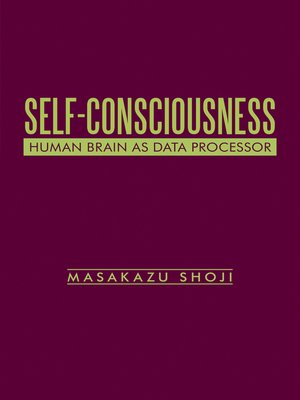
Sign up to save your library
With an OverDrive account, you can save your favorite libraries for at-a-glance information about availability. Find out more about OverDrive accounts.
Find this title in Libby, the library reading app by OverDrive.



Search for a digital library with this title
Title found at these libraries:
| Loading... |
A summary of author Masakazu Shoji's previous works, Self-Consciousness: Human Brain as Data Processor, explains self-consciousness by using a simple, mechanical model of the human brain, which reflects its past development of evolution by natural selection. The model was built from the information acquired from the unbiased, introspective observation of Shoji's own mind and other rational assumptions.
In this study, geared for those with a background in the research and science of psychology, Shoji introduces a new approach based on systems and information science; it relies on the synthetic method of study by designing the human brain's functional model. It deals with the self-conscious directly, without adding in subconsciousness or quantum mystery, as has been done previously. The model was designed realistically using hardware built with genetic instructions, using neurons as the elements of digital and analog operations.
Shoji shares that versions of this model reveal how humans acquire and store memories of images of the outside objects, sense the images internally, execute necessary actions directed by the images, feel an emotional state by facing life's events, and develop intelligence by accumulated experiences. The model also explains mysterious mental experiences, such as seeing dreams, daydreams, phantoms, ghosts, and feeling premonitions.






